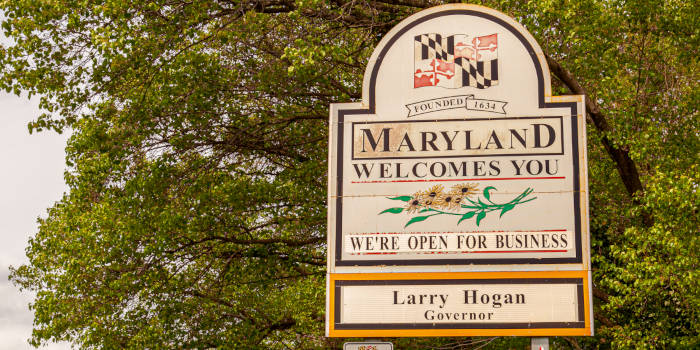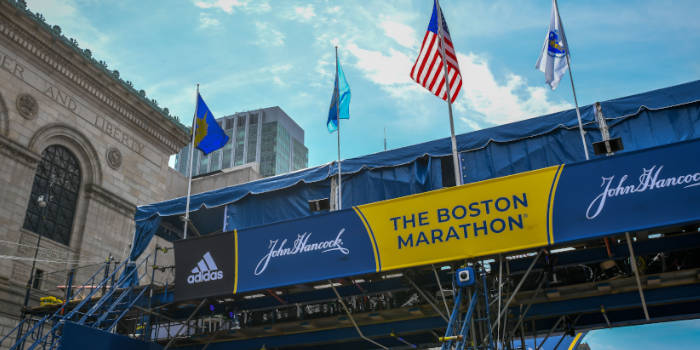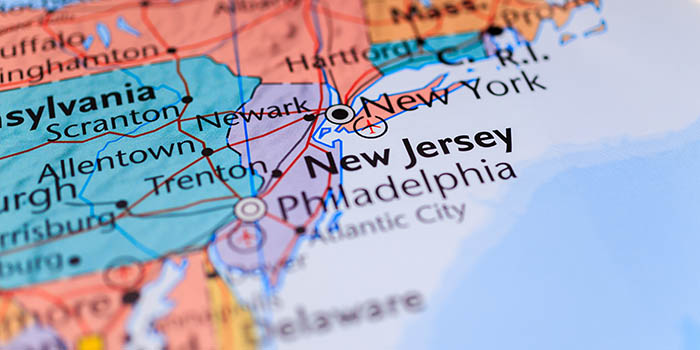888’s Yaniv Sherman: “Time Is of the Essence to Come up with an Agreement”

In what are monumental times for the US sports betting market, we spoke with one of the key stakeholders in the New York betting market amid the renewed push for the legalization of mobile sports betting in the Empire State. 888 SVP, Head of U.S. Yaniv Sherman sat down with us for a Q&A sharing his thoughts on New York Gov. Andrew Cuomo’s change of heart about the legalization of online betting in the state.
Sherman outlined the event as an important stepping-stone, but reminded that it was a window of opportunity and that time was of the essence. To see mobile betting successfully legalized, Sherman explained, stakeholderс would need to put aside their differences and come up with an agreeable proposal that would convince the governor and his office of the benefits of an open market.
Should a state-owned monopoly be established, cautions Sherman, this would lead to a lose-lose-lose situation for stakeholders, state revenue, and more importantly – the consumer. Here is our full sit down with Sherman.
Big news from New York with Gov. Andrew Cuomo announcing his plans to legalize mobile sports betting. The legalization push for sports betting in New York has been going for over ten years now with staunch supports such as Sen. Eric Adams and Sen. Joseph Addabbo ardently supporting the idea. Yet, progress in online sports betting was only made last week with the governor first announcing his intention to back mobile sports betting. We were hoping to find out what you think about the recent developments as an industry insider?
Just to put things a bit more accurately, Gov. Cuomo did not state that he would legalize mobile sports betting – he felt or reflected that it would not require a constitutional reform, which was his suggestion to date, which meant that the process would be a lot more cumbersome and lengthy, and so that is indeed good news.
I think it remains to be seen how this develops because the situation in New York is relatively complicated. It has stakeholders, basically four or five groups that – each one of them – have their own interests. Some of those interests are overlapping; some of them are in some contradiction.
It remains to be seen if the stakeholders can find a common ground and then push a deal through with the legislator. Gov. Cuomo stated that he wants the state to run mobile sports betting. I think that statement sort of threw everyone down a different rabbit hole.
I think it’s still early days. On the back of that statement, Gov. Cuomo is potentially removing his principal objection and looking at the tax collection being done in New Jersey and Pennsylvania.
This is the start of the process. How effective and how competitive it would end up being is now, as I mentioned, up to the stakeholders and the legislators to come up with a reasonable.
I think the bill that was introduced last week or this week, it sort of provides some framework with potential arrangement, expanding the number of available licenses, which I think generally speaking, is what we should be striving for – more competition that would result in a better market and more tax collection eventually.
Do you think that stakeholders and lawmakers will come together and press the governor to change his mind about the state running sports betting in the Empire State? Do you think there will be a lot of pushback or would stakeholders and lawmakers have a closer conversation with the government to find some solution to what could be a problem to the open market?
I think that if stakeholders approached the governor and the policymakers with a reasonable framework, I don’t see a reason why they would push back against it. I am optimistic about that as long that solution demonstrates that the state would be better off.
I think right now the proposal is more of an opening position. In a way, it’s like, “let’s see what we can get out from the local stakeholders.” I do believe that would be the case. Maybe the lottery would be a participant in some way, eventually, but I don’t think that the state would be running it through the lottery.
From experience, the only states to run sports betting through lottery are the smaller states, the bigger state that has been doing it, I think is Oregon and I don’t think that’s a good example of tax collection optimization.
I think that if Oregon was a competitive landscape they would have been a lot better off in terms of tax collection and revenue for the state.
Imagining that Gov. Andrew Cuomo proves too adamant in his position and picks a single partner to run sports betting what would that mean for stakeholders?
It’s always a possible scenario because Gov. Cuomo is one of the more powerful governors and he has a lot of political capital. Maybe the state will be better off in the near term, but at the end of the day, almost everyone else would lose.
The consumer would lose, the leagues would lose because one operator means no official sponsorships and much less official data. The offshore would win because they would keep offering markets to sports bettors, meaning people would keep betting offshore.
The lottery is not an online organization today. Almost every front, much less tax dollars, marketing dollars will be going into the state generally speaking. So I think, in every possible aspect the state and the consumers would end up losing in the nearer and the long-term from a state-run or owned betting monopoly.
I just don’t see a state with this amount of population and GDP going with this model. If you want to look at it, the only other place that has been doing it this way is provincial Canada where lotteries are running gaming and you can look at the data and see how badly they are performing in comparison with what they could do and that’s why they are revisiting this model now.
Generally speaking, online state-run monopolies are not good all-around.
One thing that Sen. Addabbo said is that if the governor ends up choosing a monopoly model, what would happen is that brick-and-mortar casinos would end up disappearing. What do you think about this statement?
I also think that the brick-and-mortars have already struck very lucrative deals with partners. That’s already priced in into their economics. I think this is going to end up with a flurry with contentious activities all around.
I mean, I agree – brick-and-mortar sports betting is so small in New York you can get a sense how effective retail is in general. Even if only the commercial and tribal casinos are allowed to offer a single skin, I think that is undercutting the market’s potential.
Doing it through a single provider, which may not be even a casino, it may be a sports betting website. They may partner with someone like Scientific Games and IGT, and that would lock out everyone else out of the market.
I just find it hard to see a reasonable outcome all-around. I think that would be a lose-lose-lose situation. I think it should be the sector, our industry, to come up with a reasonable solution that would appease the governor’s office and also create a competitive landscape.
I think it’s completely doable and it has been done time and time again in other places.
Ideally, if New York is an open market and casinos are allowed to team up with proven brands such as 888, what would that mean for you?
It’s huge. It’s definitely important as we have already signed market access deals in Colorado, Indiana and Iowa. New York would be at the top of the list. We would be looking to introduce our state-of-the-art technology in New York, and sort of harvest New Jersey/Pennsylvania footprint.
You know, we’re already underway launching our poker product in Pennsylvania and potentially our gaming product. We also hope that the legislation could include more than sport. We are certainly trying to keep poker front and center.
So, definitely it would be a huge step forward for 888 as a global organization and New York will represent our biggest potential like it would for others.
Do you think you would be able to be competitive in New York? Is there any particular concern you have about New York becoming a competitive market where you have to compete against other heavyweights in the industry?
Well, I think you have to think about it based on state, but we know that we can compete. We operate our proprietary technology globally as one organization. Our global online footprint is maybe second only to Flutter and as we look at the size of our operation, we are a big and well-established company, sort of taking a different approach than the rest of the market where everybody either committed or is investing enormous amount of money into the market trying to create growth at all expenses.
We believe our technology and product would take the lead. We are now in the midst of a big project upgrade of our infrastructure in the US which already showed some initial signs of growth coming out of that. We need to take small steps here – we will definitely grow our market share in the next couple of years.
It starts with market share, and taking on the big names in the industry on that level – every day of the week. Our technology, our gaming technology and especially our sports technology is second to none, and it’s just a matter of focusing and executing on the US, and this is a marathon, people sort of forget that.
I think some of the people have been jumping the gun with the partnerships they have been striking. I think some of them are not economically viable in the long-term.
New York is this state where, if you look back ten years, you can see that there have been numerous bills struck down one after another. Do you foresee a situation where the governor’s commitment to bringing sports betting online misses the mark to the disappointment of all?
I think that time is of the essence to come up with some form of agreement. I think we need to utilize the unique set of circumstances – the budget deficit and hopefully coming out of the covid-19 pandemic with some legislative tailwind. I think the onus is on us to come up with this consistent position and get behind an agreement.
Otherwise, if stakeholders keep pulling every which way we would wind up where we were the last ten years and we will miss out. Legislative sessions are always a window of opportunity and each legislative session and the budget window, when it opens next year, it may be in the midst of another gubernatorial race – it may be a host of other things that stalls the process.
I needn’t remind everybody that mobile sports betting is not a top five political issue for no-one in Albany. We need to remember where we all live and the state is coming off – hopefully – its biggest crisis in recorded history. We just need to be mindful and use this opportunity the best way.
It also bears some important symbolic meaning for US sports betting to add one of the top four states – the number three state in terms of population, the number two state in terms of GDP.
I think it’s a big statement towards the overall market-creating of the Northeast as the new iGaming powerhouse. It has even an indirect significance.
You mentioned that 888 is getting into several states this year, Colorado, Iowa and Indiana, and Pennsylvania, of course for poker and iGaming, as you mentioned. Do you see yourself growing more on the sports betting front more throughout 2021?
Yes, definitely. I am not sure if we will launch all of these this year or this year into the next year, but we are definitely looking growing in that front faster than in other verticals.
If you have one key objective for 2021 what would that be?
Well, basically it’s the same just combined. Upgrading or bringing our latest technology into the US, and then deploying new states on that infrastructure throughout the country, and growing our market share in existing states both with Caesars and our B2C activities.
Mike made his mark on the industry at a young age as a consultant to companies that would grow to become regulators. Now he dedicates his weekdays to his new project a the lead editor of GamblingNews.com, aiming to educate the masses on the latest developments in the gambling circuit.















